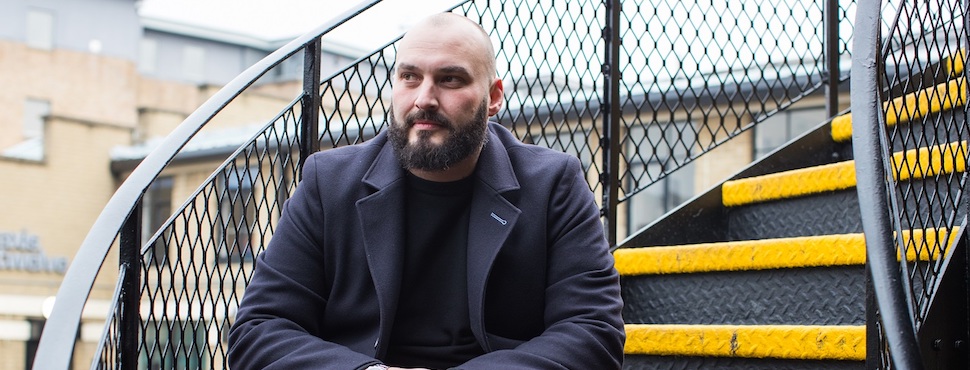The BBC recently ran a segment on a new report that says that dyslexics – like me – are really strong in a whole range of skills which are becoming vital for companies that want to do well in the 21st Century.
It almost made me choke on my cornflakes. Turns out, all of the things that made my school life hell, and which I later found out were due to my dyslexia and also Attention Deficit Disorder, are actually incredibly valuable.
The report – The value of dyslexia: Dyslexic strengths and the changing world of work – was put together by EY (the consulting firm formerly known as Ernst & Young) on behalf of charity madebydyslexia.org. It makes it crystal clear to anyone – whether they have dyslexia or not – that dyslexic individuals aren’t disabled: instead, they have differing abilities to non-dyslexic individuals.
Dyslexic challenges
The report says that at least 1 in 10 people have dyslexia to some degree and that it’s a genetic difference that affects their – OK, our – ability to learn and process information. That’s definitely been my experience, and it made formal education incredibly challenging.
I did pretty terrible at school. Despite being bright, my dyslexia and mild ADD made it very difficult to study. It wasn’t that I was stupid – far from it, as my business success so far shows. But traditional learning, and in particular exams, were frankly wasted on me. By the way, in case you’re wondering, the content of this article is mine – but my business success means I can afford to hire a good PR agency which is handling the boring stuff like grammar, spelling and punctuation. Ah, the rewards of success.
One of the key points the report stresses is that dyslexia is still regarded by teachers, employers and Government, as a challenge to be overcome – while the truth is, it should be seen as a difference and something valuable to society and business.
The report explains that dyslexic individuals have differing abilities to what it calls neuro-typicals, with strengths in creative, problem solving and communication skills and challenges with spelling, reading and memorising facts.
So what does that actually mean? Dyslexic individuals can come to different conclusions and alternative views, and can come up with more creative solutions, to the rest of the population. They – sorry, we – are better at visualisation and logical reasoning skills and our natural entrepreneurial traits “can bring a fresh, often intuitive perspective.”
I got someone to check out the people who put the report together, by the way; and it was great to learn that everyone involved in it, both at the charity, madebydyslexia.org, and also the team at EY who researched and wrote it, have dyslexia.
Communication skills
But then, I would have guessed that – it’s logical, it uses complex visualisation tools, and, above all, it demonstrates empathy and communication skills – just a few of the skills where dyslexic people tend to score much higher than the average individual, according to the report.
It also makes it very clear that our world – and in particular work – is changing massively. Society and business alike need new kinds of skills, ones which ‘neuro-diverse’ people are really strong in. But if we are to exploit these strengths, we need to stop seeing dyslexia purely in terms of its challenges (and trust me, there are challenges) and learn to embrace the opportunities it offers.
I couldn’t agree more. We have to change how the education system and the employment system treat people who learn and think differently.
Rise to success
I started working at 16, while I was at college. I’ve run restaurants and club nights, and I’ve put in some hard graft handing out flyers for student gigs on the pavements of London.
Now, 20 years on, I have founded three companies, bought two, exited three – and gave it all up for a year to travel through 60 countries on a motorbike, before coming back and starting all over again. I’m now the proud CEO of a group of businesses offering staffing and marketing services, and I’ve built a great team around me with skills that complement my own.
I’ve spent two years as a mentor with the Prince’s Trust giving talks and helping young people trying to break into the world of business, and I’ve been closely involved with UK entrepreneurial organisations, encouraging people to live their own dreams.
I’m not trying to blow my own trumpet here: the point I’m trying to make is that NO ONE asks me for my GCSEs, A Levels, or degree.
I’ve known all along that I was good at things that other people found difficult (and vice-versa) and I succeeded because I found something I could do and I was good at, and I worked to my strengths.
But it’s great that people are finally producing evidence, like this report, that says that people like me are valuable and needed.
My advice to anyone reading this article right now, whether dyslexic or not, would be to read the report – and act on it!
By James Rix, Founder and CEO of Harrix Group
Originally published HR News | 22 November 2018

